Best coffee makers 2025 – the top appliances for creating a café in your kitchen
We've tested the bold, the beautiful, and the bitter to give you everything you need to know
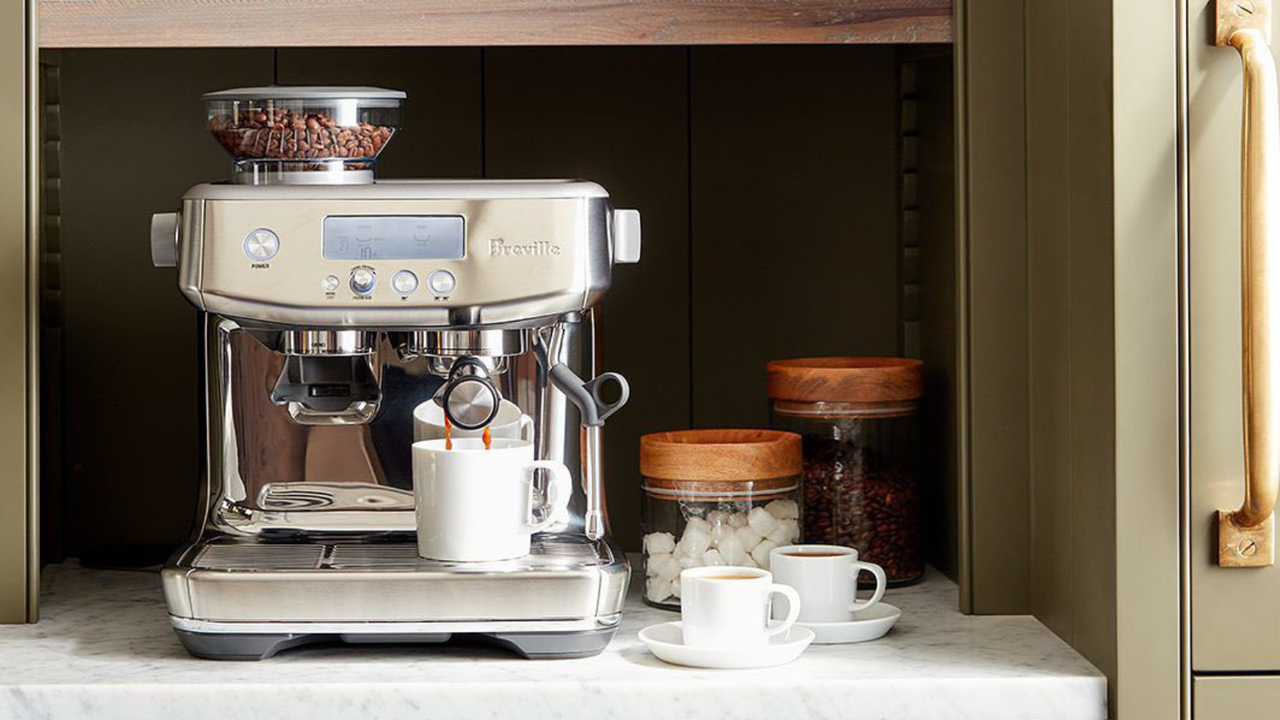

As a kitchen appliance expert, the question I hear most often is 'What's the best coffee maker?' It seems simple enough, but the answer is different depending on what kind of coffee you like to drink.
Personally, I’m a cappuccino girl, and since my mornings are always a rush, I swear by the best espresso machines. But I live with a barista, who is all about strong black coffee, so there's always a French press on our table, too.
Over the last nine months, I've been lucky enough to test the best coffee makers of all shapes, sizes, and brewing methods – with the help of my team of expert product testers. We've tested premium espresso makers over $1000, all the way through to small Moka pots and cheap pod machines.
Our favorite overall is probably the OXO Brew 8 Cup Coffee Maker which brews simple, delicious coffee that you just can't argue with. But in this guide, I deep dive into the different brewing styles, explaining who they suit and supplying luxury and budget options for each category. Just tell me your coffee order – I’ve got the perfect fit for your kitchen.
Quick List
If you're here for the TLDR, these are the best coffee makers from each category. They scored five stars across the board in our tests. I'll go into more detail further down the page.
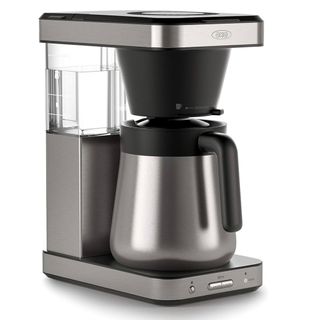
This makes simply delicious coffee. Whether you want a single serving or enough for eight, the OXO delivers flavorful filter coffee in a matter of minutes. It's small, sleek, and easy to use. All our product testers loved it.
Read more about the best drip coffee makers below.
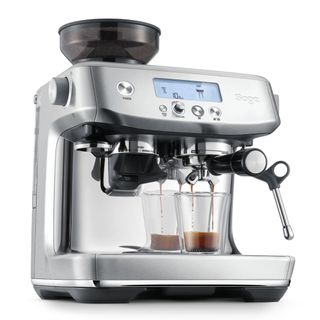
The Barista Pro is everything you need in an espresso machine. It’s the perfect balance of hands-on and automated. Our tester is an ex-barista, and she says it's the best espresso machine she's ever tested.
Read more about the best espresso makers below.
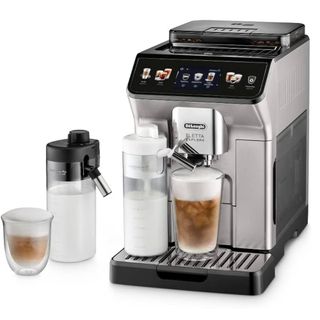
All you have to do is tap a screen to gain access to over 52 different and delicious coffees. It might sound like overkill, but each and every one is top quality, from cortado to cold brew. It's a versatile option for busy, hands-off coffee snobs.
Read more about the best fully automatic machines below.
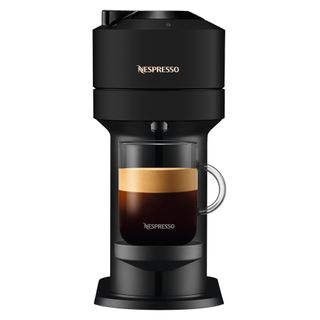
Pod coffee doesn't score top marks for flavor, but it will for speed. This can make tasty, black coffee in seconds. You can get a milk frother in one of Nespresso's bundles, if you if you want lattes. We're just not super keen on the amount of plastic use.
Read more about single-serve pod coffee makers below.
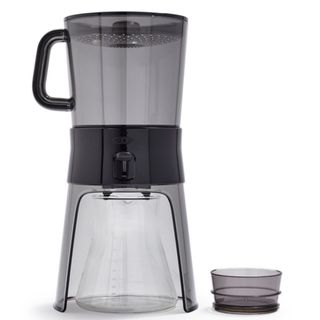
The Good Grips is smart and straightforward. It infuses your coffee grounds in water for 12-24 hours and then filters your cold brew into an elegant glass carafe. We’ve never tasted a better cold brew and it’s easy to store any leftovers in the refrigerator.
Read more about the best cold brew makers below.
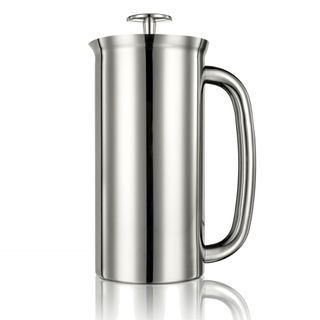
This boasts a substantial, stylish design. It makes a strong, rich French press coffee and keeps it at the perfect temperature. It's well insulated and durable, thanks to the stainless steel. We can't really fault it.
Read more about the best French presses below.
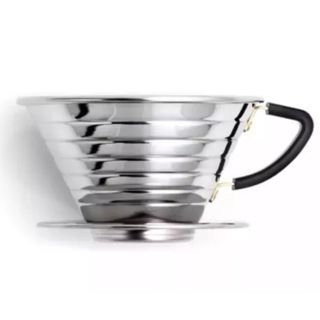
Chic and trusted, the Kalita Wave has established itself as one of the best pour-overs available. The design is traditional and it produces a really delicate, aromatic brew. It's a mindful morning routine.
Read more about the best pour overs below.
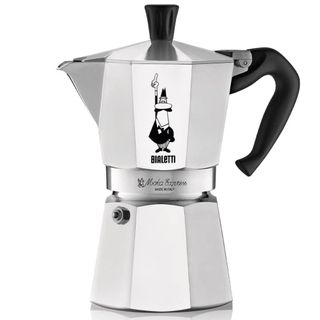
This moka pot is about as authentic as it comes. It sits easily on the stovetop and comes in a range of sizes for various different households. The coffee is rich and full-bodied. You can see this in museums it's that iconic.
Read more about the best moka pots below.
Recent updates
FYI: I test a new batch of coffee machines every month, and as of January 2025, I’ve updated this guide to name the Breville Barista Pro the best semi-automatic espresso machine for its brilliant value for money. I'd also like to give a special mention to the Aeropress Premium, which is an excellent non-toxic coffee maker but it didn't quite make this list. Coming up in February, I’ll be testing the new Philips Baristina – if it meets the mark, expect more updates soon.
What are the different types of coffee makers?
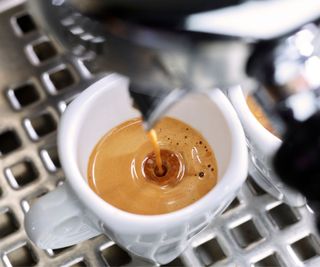
Before we dive deep into my reviews of the best coffee makers, you might want some help choosing the type of coffee maker you want. This table will give you a quick insight into each brewing style.
| Type | Buy it if: | Cons |
|---|---|---|
| Drip coffee | You want large quantities of light coffee | Should be brewed in big batches |
| Semi automatic espresso machine | You want professional-level speciality coffee, espresso and lattes | Time-consuming; fiddly; easy to get wrong |
| Fully automatic espresso machine | You want quality coffee at the touch of a button | Expensive |
| Single-serve | You want fast, cheap, automatic coffee | Plastic pod waste, lower quality taste |
| French Press | You want strong, quality coffee | Brew time and clean up |
| Pour-over | You want light, fast, cheap coffee | Prep time and clean up |
| Moka pot | You want high-quality, strong espresso-like coffee | Can’t set it and forget it |
| Percolator | You want straightforward coffee | Easy to over-extract |
| Cold brew | You want sweet, smooth, refreshing coffee | Long brew time |
Best drip coffee makers
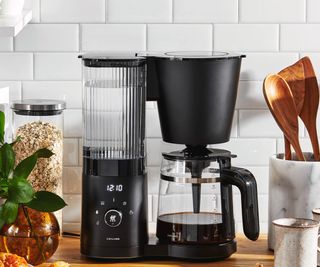
Drip coffee, also known as filter coffee, is the nation's favorite brewing style. The smooth, light, delicate flavors are easy to sip all day long.
One of the pros of drip coffee makers is their sheer simplicity. It's easy to learn how to use a drip coffee maker, so it is perfect for beginners and those who don't want to have to complete a PhD to use their machine. They are a breeze to rinse and maintain, too.
If you want to get full flavors from your filter coffee maker, you need to pair it with one of the best coffee grinders. This can bump up the price, but if you care about specialty coffee, it's worth it.
One downside of drip coffee makers is that they are often big and they make singular, very simple coffee. There's no intense espresso or creamy cappuccinos here. If that's your style, scroll down to see the best espresso machines.
I've tested the best drip coffee machines and these are my three favorites.
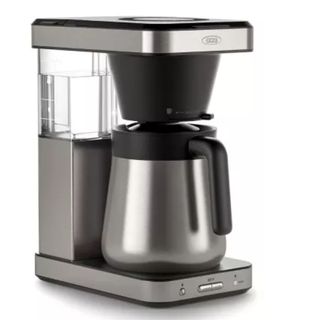
This is our favorite drip coffee maker, because it makes straightforward, great coffee. It meets the Speciality Coffee Association's Golden Cup Standard for its quality, so we know we're drinking the good stuff.
Our OXO 8-Cup Coffee Maker review more details.
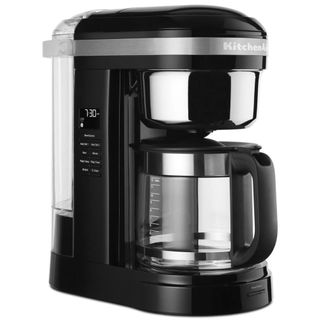
Big and beautiful, KitchenAid's drip coffee maker is one of the easiest we've ever tested. It's incredible value for the flavors and capacity of this beautiful brewer.
There's more detail in our full KitchenAid Drip Coffee Maker review.
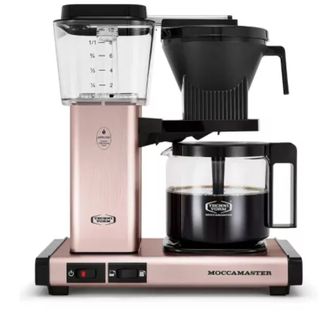
This Moccamaster is all about luxury. It's extremely quiet and crafted to meet the qualifications set by the Specialty Coffee Association and the European Coffee Brewing Center. Trust us, you can taste it.
Our Technivorm Moccamaster KBGV Coffee Maker review has more details.
Best espresso machines
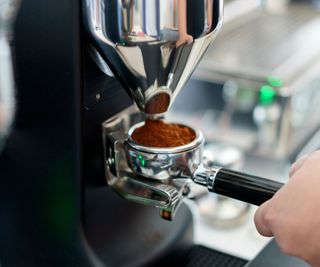
If you've ever admired the set-up in your local café, you've probably been looking at one of the best espresso machines. These elite machines, once reserved for baristas and coffee connoisseurs, now grace homes around the world. They make rich, intense shots of coffee, and they're paired with steam wands for café-quality lattes and cappuccinos.
Espresso machines are fairly large and they can get expensive, ranging from $500-1,500 in price. They can also be a little complicated to operate, but there are varying degrees of automation depending on how much control you'd like over your brew.
Models are becoming increasingly simple and user-friendly, but if you're a total beginner and want coffee at the touch of a button, scroll down to the best automatic coffee machines instead.
I've tested the best espresso machines and these are my three favorites.
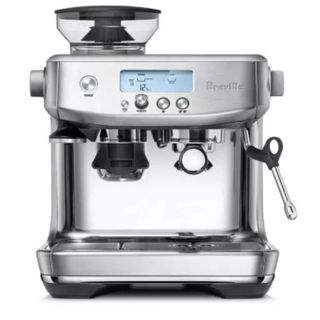
As an espresso machine, this is hard to fault. It's intuitive to use, but has the technical ability to cater to a sensitive coffee drinkers palette. It might be big and at the top end price wise, but it's worth it.
You can find out more in our Breville Barista Pro review.
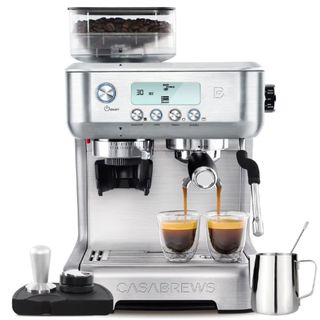
The TikTok famous Casabrews wins when it comes to value. I found the steam wand really intuitive. It's a little slow, but amazing value when you considering that has an integrated grinder, replacement grinder, and a host of other useful accessories too.
You can find out more in our Casabrews 5700 Pro review.
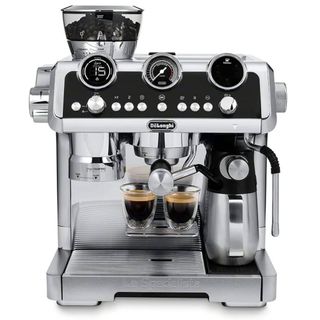
Looks don't deceive with this luxury machine. Alongside incredible espressos, this can make a range of coffees, including cold brew. It has incredible capacity, but a large price tag.
You can find out more in our De'Longhi La Specialista Maestro review.
Best automatic coffee machines
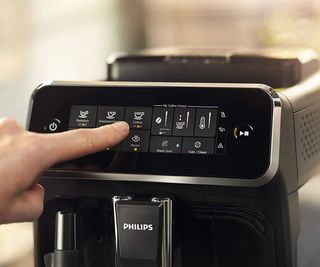
If you like the finer things in life, a bean-to-cup coffee maker might be just what you're looking for. These automatic espresso machines are specially designed for beginners or anyone who wants a quick cup of coffee without much effort. Simply add the beans, place a cup underneath, and let the machine handle the rest.
I have a De'Longhi machine in my kitchen and I adore it for lazy or rushed mornings. I can save my coffee preferences and order tonnes of different brews depending on my mood. Automatic machines usually have milk frothers, so you get café-quality cappuccinos and flat white in about two minutes.
However, this convenience comes at a cost. A quality bean-to-cup machine usually starts around $700 and can go up to $2,000. While the upfront price may seem high, they’re durable and can save you money in the long run, especially with reputable brands like the ones below.
I've tested the best bean-to-cup machines and these are my three favorites.

De'longhi produce some of the best automatic coffee machines we've tested. This sleek, Italian-made model has over 52 coffee styles to choose from, a colorful touchscreen, and an excellent milk frother. With self-cleaning features and friendly instructions, it's a joy to use.
You can read more in our full De'Longhi Eletta Explore review.
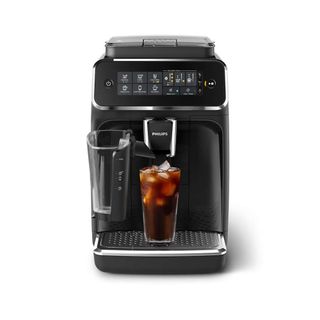
Uniting quality and value, this coffee maker can do it all. It's automatic, so grinds, brews, and serves your coffee at the touch of a button. You'll be able to make delicious coffee for all the family, at a lower price than our best choice overall.
You can read more in our Philips 3200 Fully Automatic Review.
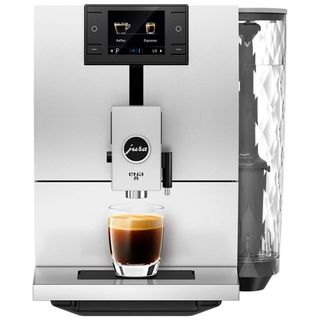
With ten different coffees at the press of a button, this quiet coffee machine is seriously impressive. It delivers a consistently premium taste to rival the trendiest baristas. Jura's J8 model features a sweet foam setting for effortless café-style treats.
You can read more in our full Jura ENA 8 review.
Best single-serve coffee makers
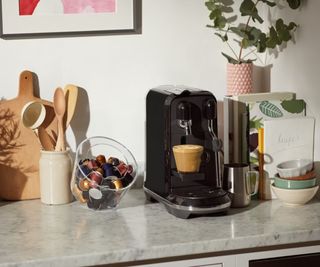
The best single-serve machines use pods or capsules to create simple but delicious coffee. A convenient option for those seeking speed. While the flavor may not be as fresh as espresso machines, they are ideal for small spaces and busy people.
However, you'll need to keep up with your capsule supply, and disposing of them can be a hassle. Eco-conscious users should seek out B-Corp-certified machines that work with compostable capsules, like the illy ESE and Grind One Pod, to minimize waste.
Single-serve machines are affordable, generally priced between $100-300, but most are made from plastic and aren't built to last long. If you're after durability, a drip coffee or bean-to-cup machine might be a better long-term investment.
These are my favorites. There's a wider selection in my guide to the best single-serve coffee machines.
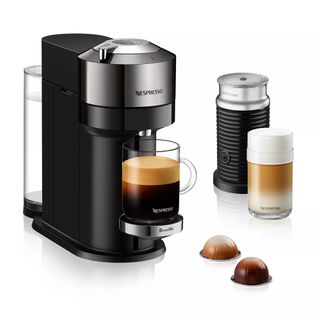
The Nespresso Vertuo Next is sleek, stylish and perfectly practical. After years of using all of the best Nespresso machines, our experts decided that the Nespresso Vertuo Next deserves the top spot. It's versatile, easy to use, and really good value.
You can read more in our Nespresso Vertuo Next review.
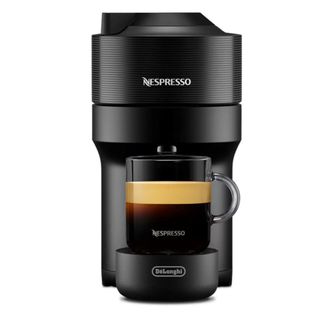
In our expert opinion, this is the only small, cheap single-serve pod machine worth buying. We tested it against other brands like Keurig, but we much preferred the signature Nespresso coffee. You're just sacrificing on size; it's not ideal for big families.
You can read more in our Nespresso Vertuo Pop review.
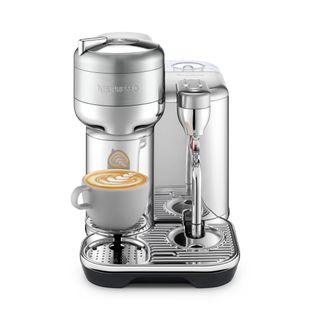
When I mentioned luxury, this is what I had in mind. The smart, milk-frothing machine is championed by none other than David Beckham. It's a splurge, so shop it in the sales if you can.
You can read more in our Nespresso Vertuo Creatista review.
Best French press
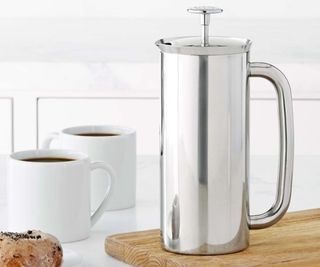
As you might have guessed from the name, French presses are very European. You've probably seen them sat on a wooden tray next to a croissant in an Instagram picture. The process is slow and mindful, delivering multiple cups of rich, delicious coffee.
The flavor profile is often described as acidic and bitter, which won't appeal to everyone. It's certainly not very sweet, but the process can draw out more earthy, nuanced notes in your coffee.
Learning how to make a French press coffee is easy, so it's often a method I recommend to beginners. The clean-up is similarly simple. I wouldn't expect to pay much over $100 for a good French press, so it's excellent if you're on a budget. My only word of warning is that these are easier to break. I've smashed more glass carafes than I care to admit, so if you know you're clumsy, make sure to invest in a stainless steel model.
These are my favorites; I explore more options in my roundup of the best French presses.

This boasts a substantial, stylish design. It will make the best French press coffee and cold brew you'll ever taste. It's well insulated and durable, thanks to the stainless steel.
You can read more in our French press buying guide.
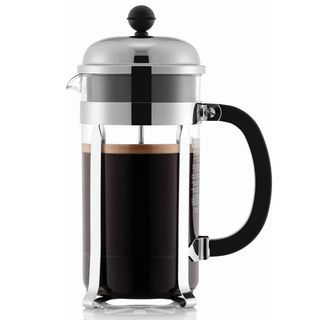
Classy and elegant, the Bodum is a beautiful French press. It's easy to use and clean, with double filter that helps to deliver a smooth cup of coffee. It's a very fair price for the quality.
You can read more in our Bodum Chambord review.
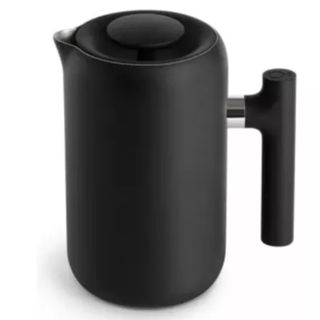
Fellow products never fail to deliver on quality and design. The 360-degree pour spout, non-stick interior, and ratio aid lines make this a well-designed, luxurious addition to your coffee collection.
You can read more in our Fellow Clara review.
Best pour over
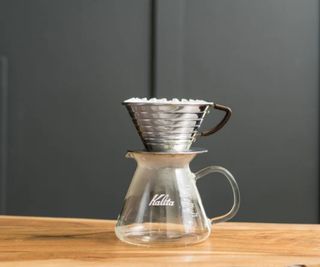
If you like delicate, aromatic coffee, a pour-over coffee maker is an excellent option. Simply sit filter paper in the funnel, place your coffee grounds in the funnel, and pour water over it.
As with drip coffee makers, you'll either need to grind your own coffee or buy fresh grounds to enjoy the flavors fully. The brewing process can take up to 15 minutes, – if you need your morning cup of joe quickly, it's not the one for you.
If you're price-conscious, this is an excellent option, since these tend to cost no more than $50. If you're careful, they'll last a lifetime too. If you're clumsy, make sure to opt for a metal pour-over rather than a porcelain or glass option.
These are my three favorites; I've recommended more options in my guide to best pour-over coffee makers.

Chic and trusted, the Kalita Wave has established itself as one of the best pour-overs available. The design is traditional and it produces a really smooth cup of joe.
Read more in our guide to the best pour-over coffee makers.
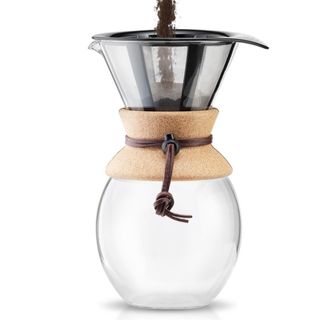
As eco-conscious as it is wallet and design-conscious, the Bodum is an all-round thoughtful pour-over. There's a knack to using it though.
Read more in our guide to the best pour-over coffee makers.
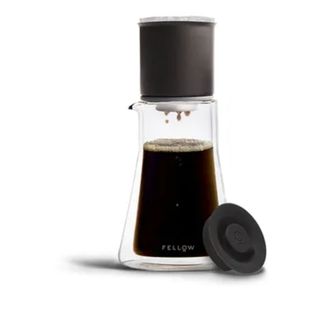
The Fellow Stagg boasts form, function, and excellent insulation. Everything about it is premium, including the price. I also recommend the Hario V60 as a beautiful, retro-style pick.
Read more in our guide to the best pour-over coffee makers.
Best stovetop or moka pot
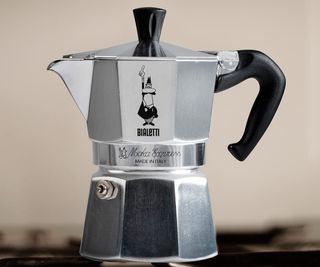
If you enjoy espresso flavors, but don't want to pay the professional price tag: meet the moka pot. This stovetop appliance makes smooth, intense, and rich coffee. I'm convinced that most coffee drinkers wouldn't be able to tell the difference between moka pot and espresso machine coffee if they were blindfolded.
Even the best moka pots are much cheaper than an espresso machine. However, they can only make black coffee and if you have an induction hob, you'll have to choose a model carefully. These are designed for gas stoves normally.
Moka pots tend to cost $30-130, so it's a great entry point for espresso drinkers. These retro pieces actually make great design features. I've written a buying guide to the best moka pots, including some gorgeous Dolce & Gabbana designs. You'll see that they're mostly from Bialetti because the brand has dominated the market since they were founded.
These are my three favorite picks.

This moka pot is about as authentic as it comes. It sits easily on the stovetop and comes in a range of sizes for various different households. You can see this in museums it's that iconic.
Read more in our Bialetti Moka Express review
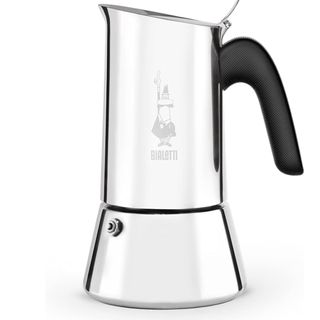
Not every moka pot works on induction hobs, which is why Bialetti has made one to work across a range of stoves. It's quiet and quick, but without the traditional silhouette.
Read more in our Bialetti Venus review
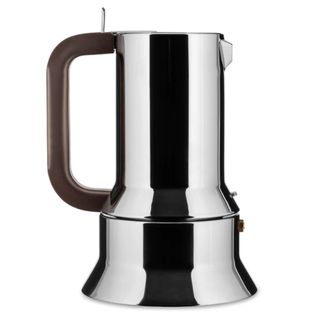
Alessi does luxury like no other. Their sleek, premium moka pot is durable and weighty. I love all of their modern designs, but they cost ten times the price of Bialetti's.
Read more in our Alessi 9090 review.
Best cold brew
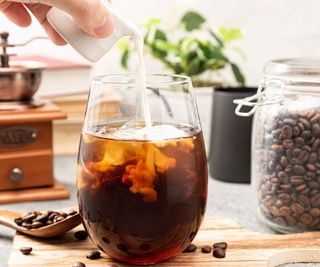
Cold brew has gained popularity for its smoother, sweeter taste compared to traditional hot brews. Unlike iced coffee (which is just hot coffee cooled down) cold brew is steeped in cold water, creating a velvety, rich drink with minimal bitterness. You can use a dedicated cold brew machine or a French press, though the process can take time – often requiring at least 16 to 24 hours for the coffee to steep.
Cold brew coffee makers simplify this process, allowing you to press a button or let the grounds sit on the countertop. They're relatively affordable, ranging from $30 to $150. If you're looking for versatility, some coffee machines from brands like Nespresso and Breville come with cold brew settings.
Here are three of my favorites, but I've written and tested some of the best cold brew coffee makers, which you can read about here.
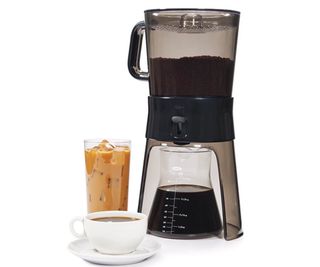
This is an easy win. The Good Grips made the best cold brew we've ever had (even in a coffee shop). It looks smart, it's easy to use and makes consistent cups of cold brew. Plus, you can store any leftovers by putting the carafe in the refrigerator.
You can read more in our OXO Good Grips Cold Brew Coffee Maker review.
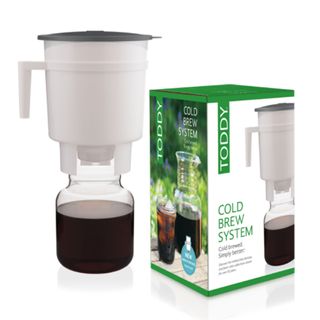
Iconic amongst cold brew drinkers, the Toddy system makes cold brews easy. At around $30, it's also budget-friendly. Compared to others, it's a bit plasticky, but if you want a good cold brew for cheap this is your go-to.
You can read more in our Toddy Cold Brew review
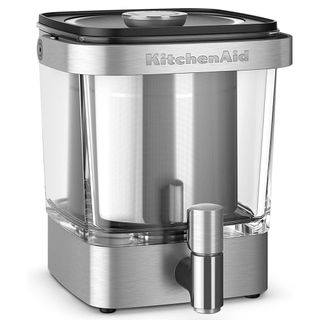
Crafted from stainless steel and glass, this is premium. It sits neatly in the refrigerator and has a useful tap for pouring cold brew, iced tea, or even fruit water straight into the glass. Our expert liked it so much, she bought one for herself after testing.
You can read more in our KitchenAid Cold Brew review
How to choose the right coffee maker for you
Personal taste: When you're choosing the perfect coffee maker for you, the best place to start is with the kind of coffee that you enjoy. If you prefer punchy espressos, an espresso machine, moka pot, or AeroPress will give you that full-bodied flavor. For lattes and cappuccinos, espresso machines with steam wands are ideal, while some single-serve machines also offer milk frothing options. If you require larger servings of rich black coffee, a French press, pour-over, or drip coffee maker will suit you. An automatic espresso machine is likely to satisfy all coffee preferences, suiting family households.
Space: If you have lots of space, you can choose almost any coffee maker. However, if your kitchen is compact, you'll probably want to steer clear of espresso machines and automatic coffee makers. These tend to be big appliances. You could still fit them on your countertop, but you'd have to work to do it.
Time: If you don't mind taking your time with coffee, then you'll have the pick of the bunch. However, if you're normally five minutes late for being ten minutes late, you'll want a quick machine: pod machines, pre-set drip coffee makers, and automatic machines will be your best friends. Capacity If you're the only coffee drinker in the house, you might not need a big machine. Pour-overs are an excellent option for single-cup coffee drinkers. However, if there are ten of you in your home, a drip coffee maker will cater to the masses.
Ease: If you normally buy your coffee from a barista, you might not enjoy being very hands-on when making coffee. For that reason, a bean-to-cup machine would suit you really well. It'll be just like your barista, but without the small talk. If you like the idea of becoming a barista yourself, espresso machines are at the other end of the scale. They can be a lot of fun too.
Price: It goes without saying that price has to be factored into things. I've covered how much money you should spend on a coffee maker at the bottom of this article. A French press or pour-over can cost a tenth of the price of a bean-to-cup machine or espresso machine. It's better to start small and work up to a bigger machine. That being said, we've included these machines in our roundup because we think they're good value for what they offer. I've tested machines worth more money and you can't tell the difference.
How we test
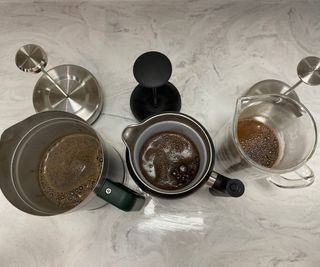
At Homes & Gardens, we have a rigorous testing process for all of our coffee makers. This enables us to score coffee makers both individually and against other models on the market.
Research: As Homes & Gardens' kitchen appliance expert, this is my starting point. I'm always on the lookout for the best coffee makers on the market. Once I’ve found one that I think you, our readers, will like, I order it to my home kitchen. I usually like to test at home, as it means I can use the appliance in my regular routine for around a month. This helps me uncover advantages (or most likely, pain points) I would never discover with a one hour session in the test kitchen.
Design: Once the machine is in my hands, I first consider the design and build quality. I give extra points to coffee makers that look good on the counter, but I never prioritize style over substance.
Brewing performance: The first thing I make with any espresso machine is an espresso. This is a way of testing how good a coffee maker is at the basics. A good espresso should be between 1.25-2 oz. It should be 190-205 degrees and full of flavor. A big giveaway is the crema on top: that should be thick with a hazelnut hue.
Then, I'll test other brews: including americano, latte, cappuccino and anything else the coffee maker has to offer.
Cleaning & ease of use: After brewing and tasting, I make notes on the clean-up process as well as how I would recommend storing and maintaining the coffee maker. I also think about how easy it is to use and what type of coffee drinker it would suit.
Value for money: After a month of testing and evaluating, I round up my notes. Then, I take a look at all of our other coffee makers to see how they compare on each testing criteria. I also look at online reviews to see what other experts and real-life customers thought, so that I could bring you more insight. After this, I give each coffee maker a score out of five. Only the five-star appliances make it into my best coffee maker buying guide.
If you’re interested and want to find out more, you can read all about the process in our how we test coffee makers page.
Meet our testing team

Lydia is a trained chef and recipe writer, currently in charge of product testing as the Kitchen Appliances Editor for Homes & Gardens. Lydia trained at Leiths School of Food & Wine and she has shadowed professional baristas, attended coffee masterclasses, and toured roasteries to master the art of coffee. Her drink of choice is a frothy, Italian cappuccino (alongside a croissant, of course).

Laura has tested over 60 coffee makers for Homes & Gardens. As a fully qualified barista, she's our expert in all things coffee – and she's even delved into matcha, too. She has also interviewed Q-Graders and world-leading experts in the coffee industry, so has an intimate knowledge of the industry.

Jaclyn is a homes product tester and eCommerce editor. She has also written for foodie publications like The Kitchn and The Spruce Eats. Jaclyn was a particular fan of the Techniform Moccamaster coffee machine she tested, which is our luxury pick in the best drip category. She says: 'It brews some of the most distinctive, memorable coffee I've ever had at home, and perhaps even out and about at cafes.'
FAQs
How much should I spend on a coffee maker?
This will depend on the coffee maker that you buy. You could spend anything from $30 to $2,000, but I wouldn't spend much more than that. When I say $30, I have pour-overs and French presses in mind. The materials used for these keep the costs low and you definitely shouldn't spend more than $150 on them.
When I'm talking about spending thousands of dollars on a coffee machine, I expect it to be an espresso machine, especially an automatic model. If you're happy to work hard and hands-on, experimenting with your espresso machine, you'll be able to pick up a model for around $600, just don't expect any automation or a grinder.
In the middle of inexpensive French presses and fancy espresso machines, you'll find drip coffee makers. If you've got about $200-$300 to spend, you'll be able to get a quality model. These won't have integrated grinders, so set aside some budget for that (more on grinders below).
As your budget gets bigger, coffee makers will probably become more convenient and versatile. Set expectations for what you want and what you're happy not to pay a premium for and choose carefully.
Do I need to buy a coffee grinder to go with my coffee maker?
Unless your coffee maker has an integrated grinder, yes you do. You can buy pre-ground coffee from the stores, but as soon as the beans have been ground up, the delicious oils in them start breaking down, tasting flatter and less delicious. Freshness plays an immense factor in the flavors of your coffee. Luckily, we have done a roundup of the best coffee grinders on the market, so you don't have to do any searching.
Sign up to the Homes & Gardens newsletter
Design expertise in your inbox – from inspiring decorating ideas and beautiful celebrity homes to practical gardening advice and shopping round-ups.

Lydia is the Kitchen Appliances Editor for Homes & Gardens, testing everything from air fryers and mixers to juicers and coffee machines. She trained in Culinary Arts at Leiths School of Food & Wine and previously served as the Recipe Editor for Mindful Chef.
-
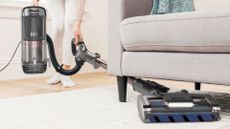 It's your last chance to buy one of our all-time favorite Shark upright vacuums in the Walmart sale – I'm a vacuum tester, and it's a seriously worthy upgrade
It's your last chance to buy one of our all-time favorite Shark upright vacuums in the Walmart sale – I'm a vacuum tester, and it's a seriously worthy upgradeThe Shark Vertex DuoClean PowerFin Upright Vacuum is now heavily discounted and brilliant for busy homes
By Dan Fauzi Published
-
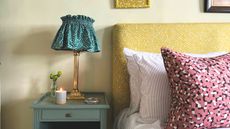 9 things to organize in April 2025 to prepare your home for a season of socializing and warmer weather ahead
9 things to organize in April 2025 to prepare your home for a season of socializing and warmer weather aheadGet sorted now for easier spring and summer get-togethers
By Chiana Dickson Published
-
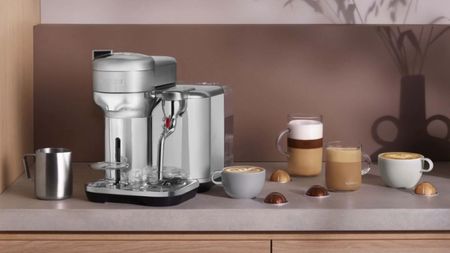 Nespresso vs espresso – tested for taste, cost, and technical differences
Nespresso vs espresso – tested for taste, cost, and technical differencesA barista offers some perspective on the Nespresso vs espresso debate. She's tested them for taste, and accounted for cost differences too
By Laura Honey Published
-
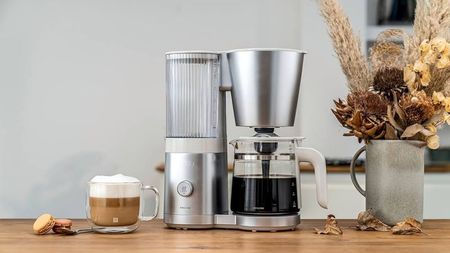 I just tested the best small drip coffee maker – and it's surprisingly stylish too
I just tested the best small drip coffee maker – and it's surprisingly stylish tooI've tested a range of filter coffee options and it turns out that the best small drip coffee maker is beautiful, sleek, and smart too
By Laura Honey Published
-
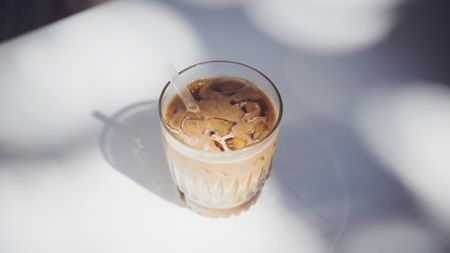 The best iced coffee makers – save hundreds by switching your favorite coffee shop drink to a delicious homemade one
The best iced coffee makers – save hundreds by switching your favorite coffee shop drink to a delicious homemade oneForget takeout iced coffee, these machines will keep you cool and caffeinated all day long
By Lydia Hayman Last updated
-
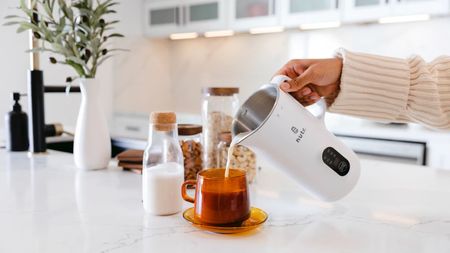 Best nut milk makers: tested by an expert vegan
Best nut milk makers: tested by an expert veganThese are the best nut milk makers for almond, oat, coconut milk and more. Our expert vegan barista tested them to see which is best
By Laura Honey Published
-
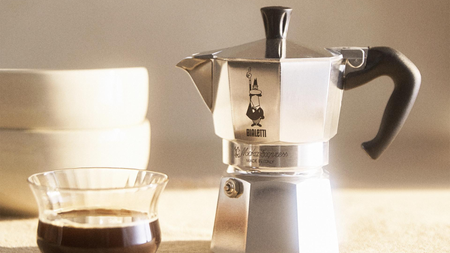 The best moka pots for easy Italian-style coffee straight from your stovetop
The best moka pots for easy Italian-style coffee straight from your stovetopOur tried-and-tested moka pots for brewing delicious coffee at home – the stylish, Italian way
By Lydia Hayman Last updated
-
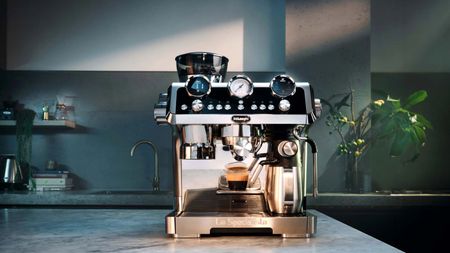 The best coffee makers with grinders for the freshest, most flavorful brews
The best coffee makers with grinders for the freshest, most flavorful brewsFrom luxurious espresso machines to tiny drip coffee makers, these are the best coffee makers with integrated grinders
By Lydia Hayman Last updated
-
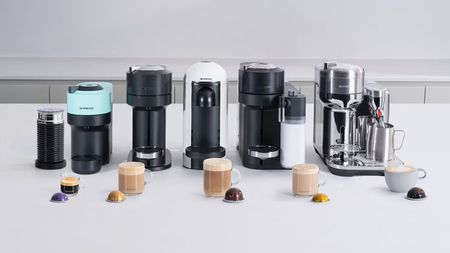 Best Nespresso machines – for every kind of coffee drinker
Best Nespresso machines – for every kind of coffee drinkerHow do you know whether you want the Lattissima or the Creatista, the Vertuo or the Original, and the Essenza or the Pop? We have the answers
By Laura Honey Last updated
-
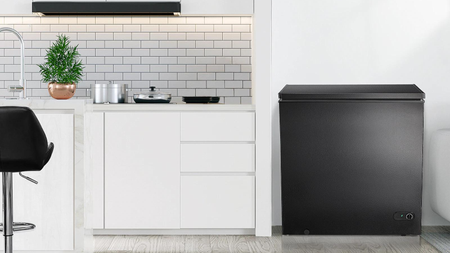 Best chest freezers: spacious, dependable, and practical
Best chest freezers: spacious, dependable, and practicalI've researched the best chest freezers on the market. From garage-friendly to enormous capacity, these are my top picks.
By Lydia Hayman Last updated